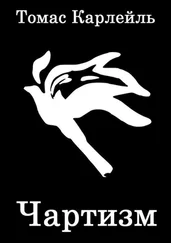Томас Карлейль - History of Friedrich II of Prussia — Volume 20
Здесь есть возможность читать онлайн «Томас Карлейль - History of Friedrich II of Prussia — Volume 20» — ознакомительный отрывок электронной книги совершенно бесплатно, а после прочтения отрывка купить полную версию. В некоторых случаях можно слушать аудио, скачать через торрент в формате fb2 и присутствует краткое содержание. Жанр: foreign_prose, История, literature_19, foreign_edu, foreign_antique, на английском языке. Описание произведения, (предисловие) а так же отзывы посетителей доступны на портале библиотеки ЛибКат.
- Название:History of Friedrich II of Prussia — Volume 20
- Автор:
- Жанр:
- Год:неизвестен
- ISBN:нет данных
- Рейтинг книги:5 / 5. Голосов: 1
-
Избранное:Добавить в избранное
- Отзывы:
-
Ваша оценка:
- 100
- 1
- 2
- 3
- 4
- 5
History of Friedrich II of Prussia — Volume 20: краткое содержание, описание и аннотация
Предлагаем к чтению аннотацию, описание, краткое содержание или предисловие (зависит от того, что написал сам автор книги «History of Friedrich II of Prussia — Volume 20»). Если вы не нашли необходимую информацию о книге — напишите в комментариях, мы постараемся отыскать её.
History of Friedrich II of Prussia — Volume 20 — читать онлайн ознакомительный отрывок
Ниже представлен текст книги, разбитый по страницам. Система сохранения места последней прочитанной страницы, позволяет с удобством читать онлайн бесплатно книгу «History of Friedrich II of Prussia — Volume 20», без необходимости каждый раз заново искать на чём Вы остановились. Поставьте закладку, и сможете в любой момент перейти на страницу, на которой закончили чтение.
Интервал:
Закладка:
Chapter II.—FRIEDRICH BESIEGES DRESDEN
From and after the Evening of Wednesday, July 9th, it is upon a Siege of Dresden that Friedrich goes;—turning the whole war-theatre topsy-turvy; throwing Daun, Loudon, Lacy, everybody OUT, in this strange and sudden manner. One of the finest military feats ever done, thinks Tempelhof. Undoubtedly a notable result so far, and notably done; as the impartial reader (if Tempelhof be a little inconsistent) sees for himself. These truly are a wonderful series of marches, opulent in continual promptitudes, audacities, contrivances;—done with shining talent, certainly; and also with result shining, for the moment. And in a Fabulous Epic I think Dresden would certainly have fallen to Friedrich, and his crowd of enemies been left in a tumbled condition.
But the Epic of Reality cares nothing for such considerations; and the time allowable for capture of Dresden is very brief. Had Daun, on getting warning, been as prompt to return as he was to go, frankly fronting at once the chances of the road, he might have been at Dresden again perhaps within a week,—no Siege possible for Friedrich, hardly the big guns got up from Magdeburg. But Friedrich calculated there would be very considerable fettling and haggling on Daun's part; say a good Fortnight of Siege allowed;—and that, by dead-lift effort of all hands, the thing was feasible within that limit. On Friedrich's part, as we can fancy, there was no want of effort; nor on his people's part,—in spite of his complainings, say Retzow and the Opposition party; who insinuate their own private belief of impossibility from the first. Which is not confirmed by impartial judgments,—that of Archenholtz, and others better. The truth is, Friedrich was within an inch of taking Dresden by the first assault,—they say he actually could have taken it by storm the first day; but shuddered at the thought of exposing poor Dresden to sack and plunder; and hoped to get it by capitulation.
One of the rapidest and most furious Sieges anywhere on record. Filled Europe with astonishment, expectancy, admiration, horror:—must be very briefly recited here. The main chronological epochs, salient points of crisis and successive phases of occurrence, will sufficiently indicate it to the reader's fancy.
"It was Thursday Evening, 10th July, when Lacy got to his Reichsfolk, and took breath behind Plauen Chasm. Maguire is Governor of Dresden. The consternation of garrison and population was extreme. To Lacy himself it did not seem conceivable that Friedrich could mean a Siege of Dresden. Friedrich, that night, is beyond the River, in Daun's old impregnability of Reichenberg: 'He has no siege-artillery,' thinks Lacy; 'no means, no time.'
"Nevertheless, Saturday, next day after to-morrow,—behold, there is Hulsen, come from Schlettau to our neighborhood, on our Austrian side of the River. And at Kaditz yonder, a mile below Dresden, are not the King's people building their Pontoons; in march since 2 in the morning,—evidently coming across, if not to besiege Dresden, then to attack us; which is perhaps worse! We outnumber them,—but as to trying fight in any form? Zweibruck leaves Maguire an additional 10,000;—every help and encouragement to Maguire; whose garrison is now 14,000: 'Be of courage, Excellenz Maguire! Nobody is better skilled in siege-matters. Feldmarschall and relief will be here with despatch!'—and withdraws, Lacy and he, to the edge of the Pirna Country, there to be well out of harm's way. Lacy and he, it is thought, would perhaps have got beaten, trying to save Dresden from its misery. Lacy's orders were, Not, on any terms, to get into fighting with Friedrich, but only to cover Dresden. Dresden, without fighting, has proved impossible to cover, and Lacy leaves it bare." [Tempelhof, iv. 65.]
"At Kaditz," says Mitchell, "where the second bridge of boats took a great deal of time, I was standing by his Majesty, when news to the above effect came across from General Hulsen. The King was highly pleased; and, turning to me, said: 'Just what I wished! They have saved me a very long march [round by Dippoldiswalde or so, in upon the rear of them] by going of will.' And immediately the King got on horseback; ordering the Army to follow as fast as it could." [Mitchell, ii. 168.] "Through Preisnitz, Plauen-ward, goes the Army; circling round the Western and the Southern side of Dresden; [a dread spectacle from the walls]; across Weistritz Brook and the Plauen Chasm [comfortably left vacant]; and encamps on the Southeastern side of Dresden, at Gruna, behind the GREAT GARDEN; ready to begin business on the morrow. Gruna, about a mile to southeast of Dresden Walls, is head-quarter during this Siege.
"Through the night, the Prussians proceed to build batteries, the best they can;—there is no right siege-artillery yet; a few accidental howitzers and 25-pounders, the rest mere field-guns;—but to-morrow morning, be as it may, business shall begin. Prince von Holstein [nephew of the Holstein Beck, or "Holstein SILVER-PLATE," whom we lost long ago], from beyond the River, encamped at the White Hart yonder, is to play upon the Neustadt simultaneously.
MONDAY 14th, "At 6 A.M., cannonade began; diligent on Holstein's part and ours; but of inconsiderable effect. Maguire has been summoned: 'Will [with such a garrison, in spite of such trepidations from the Court and others] defend himself to the last man.' Free-Corps people [not Quintus's, who is on the other side of the River], [Tempelhof, v. 67.] with regulars to rear, advance on the Pirna Gate; hurl in Maguire's Out-parties; and had near got in along with them,—might have done so, they and their supports, it is thought by some, had storm seemed the recommendable method.
"For four days there is livelier and livelier cannonading; new batteries getting opened in the Moschinska Garden and other points; on the Prussian part, great longing that the Magdeburg artillery were here. The Prussians are making diligently ready for it, in the mean while (refitting the old Trenches, 'old Envelope' dug by Maguire himself in the Anti-Schmettau time; these will do well enough):—the Prussians reinforce Holstein at the Weisse, Hirsch, throw a new bridge across to him; and are busy day and night. Maguire, too, is most industrious, resisting and preparing: Thursday shuts up the Weistritz Brook (a dam being ready this long while back, needing only to be closed), and lays the whole South side of Dresden under water. Many rumors about Daun: coming, not coming;—must for certain come, but will possibly be slowish."
FRIDAY 18th. "Joy to every Prussian soul: here are the heavy guns from Magdeburg. These, at any rate, are come; beds for them all ready; and now the cannonading can begin in right earnest. As it does with a vengeance. To Mitchell, and perhaps others, 'the King of Prussia says He will now be master of the Town in a few days. And the disposition he has made of his troops on the other side of the River is intended not only to attack Dresden on that side [and defend himself from Daun], but also to prevent the Garrison from retiring.... This morning, Friday, 18th, the Suburb of Pirna, the one street left of it, was set fire to, by Maguire; and burnt out of the way, as the others had been. Many of the wretched inhabitants had fled to our camp: "Let them lodge in Plauen, no fighting there, quiet artificial water expanses there instead." Many think the Town will not be taken; or that, if it should, it will cost very dear,—so determined seems Maguire. [Mitchell, iii. 170, 171.] And, in effect, from this day onwards, the Siege became altogether fierce, and not only so, but fiery as well; and, though lasting in that violent form only four, or at the very utmost seven, days more, had near ruined Dresden from the face of the world."
SATURDAY, 19th, "Maguire, touched to the quick by these new artilleries of the Prussians this morning, found good to mount a gun or two on the leads of the Kreuz-Kirche [Protestant High Church, where, before now, we have noticed Friedrich attending quasi-divine service more than once];—that is to say, on the crown of Dresden; from which there is view into the bottom of Friedrich's trenches and operations. Others say, it was only two or three old Saxon cannon, which stand there, for firing on gala-days; and that they hardly fired on Friedrich more than once. For certain, this is one of the desirablest battery-stations,—if only Friedrich will leave it alone. Which he will not for a moment; but brings terrific howitzers to bear on it; cannon-balls, grenadoes; tears it to destruction, and the poor Kreuz-Kirche along with it. Kirche speedily all in flames, street after street blazing up round it, again and again for eight-and-forty hours coming; hapless Dresden, during two days and nights, a mere volcano henceforth." "By mistake all that, and without order of mine," says Friedrich once;—meaning, I think, all that of the Kreuz-Kirche: and perhaps wishing he could mean the bombardment altogether, [Schoning, ii. 361 "To Prince Henri, at Giessen [Frankfurt Country], 23d July, 1760."]—who nevertheless got, and gets, most of the credit of the thing from a shocked outside world.
Читать дальшеИнтервал:
Закладка:
Похожие книги на «History of Friedrich II of Prussia — Volume 20»
Представляем Вашему вниманию похожие книги на «History of Friedrich II of Prussia — Volume 20» списком для выбора. Мы отобрали схожую по названию и смыслу литературу в надежде предоставить читателям больше вариантов отыскать новые, интересные, ещё непрочитанные произведения.
Обсуждение, отзывы о книге «History of Friedrich II of Prussia — Volume 20» и просто собственные мнения читателей. Оставьте ваши комментарии, напишите, что Вы думаете о произведении, его смысле или главных героях. Укажите что конкретно понравилось, а что нет, и почему Вы так считаете.









